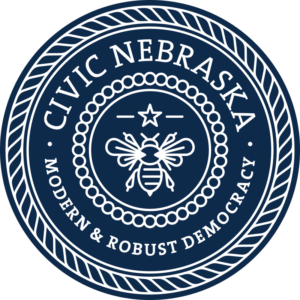Oh, the intensity of a significant election year. As summer begins to give way to fall, pumpkin flavoring isn’t the only thing getting spicy in America. Many of us proudly share our political affiliations, while others avoid discussing politics to keep the peace. Yet, with Labor Day in the rear-view, heated debates at dinner tables, workplaces, and public spaces become commonplace as Election Day creeps closer and our political passions rise.
This mix of excitement and tension reminds us that two things can be true simultaneously. Our nation has both legitimate divisions and a shared responsibility for our collective future. As we activate and advocate for our chosen candidates and issues, we circle Nov. 5 on the calendar – the mother of all deadlines.
But what about after Nov. 5? Well, that’s when the hard work begins.
As the dust settles every four years, Americans have a fleeting opportunity to come together to address our nation’s most pressing issues. This doesn’t mean everyone has to agree or pretend differences don’t exist. But it does mean living up to our American responsibility to find a way to talk with one another.
The first step is the toughest
Like sex and religion, some say nothing good can come from talking about politics in polite company. Of course, if family, friends, and neighbors aren’t talking to one another, the algorithms and pundits find their way in – and we’ve seen the division, pot-stirring, and troublemaking they’re capable of.
Face-to-face conversations require a bit of effort, especially at the beginning. An important key is to set the right tone: Imagine opening up with something like, “I know we don’t see eye to eye on the election, but I’d like to understand where you’re coming from and share my perspective, too. Let’s see if we can have a conversation without it becoming a debate.” Right away, you’re laying down some ground rules for respect. You’re signaling that you want to listen, not fight, which helps defuse potential tension before it builds.
Entering into such conversations doesn’t mean you’re compromising your values. Instead, you’re making space to understand someone else’s. You can be firm in your beliefs and open to hearing another viewpoint. Starting with a willingness to listen, you aren’t conceding your position; you’re showing respect.
Also, timing matters. You don’t have to dive into challenging political discussions when emotions are still high. Wait for a moment when things have calmed down a bit. It’s usually better to bring these conversations up in a relaxed environment, maybe over coffee or a meal. That way, a sense of connection and calm can make it easier to stay civil, even if the topic is tense.
Common ground: Actually, quite ample
A good opening approach is to focus on what you and the other person have in common rather than jumping straight into the differences. No matter your political affiliation, there’s usually some shared ground. You could start by saying, “We both care about fairness and opportunity for everyone. That’s why I supported [X candidate or policy] – I think it aligns with those values. I’m curious how you see things.”
This isn’t about sugarcoating your stance or dodging the tough stuff. It’s about acknowledging that, even if you disagree on how to get there, most people want a similar outcome: a better life for themselves, their families, and their communities. Framing the conversation this way can make discussing the deeper reasons behind one’s political beliefs easier, rather than simply debating the latest headlines.
Lay your weapons down
Here’s a big one: Don’t go into the conversation thinking you have to win. This isn’t a competition to see who can out-argue the other person or change their mind. Maybe, think of it as an opportunity to understand one another better. You might disagree, and that’s OK. The goal here is to build some mutual respect.
You can even say, “I may not agree with you, but I see why you feel that way.” That acknowledgment can go a long way in keeping the conversation respectful.
Civil discourse doesn’t mean tiptoeing around significant issues or pretending there aren’t any differences. It’s not about being nice and going along to get along. It’s about creating a space where those differences can be discussed without things getting unnecessarily nasty. Along the way, you’re helping U.S. democracy stay healthy. When we engage in challenging conversations with respect, we show that we can disagree and keep our friendships, relationships, and communities strong.
Join, or die!
The inevitable pursuit of unity after Election Day doesn’t mean forcing everyone into the same camp. We are a diverse country of nearly 350 million souls; we won’t always agree on everything. But we can have tough, meaningful conversations without tearing each other down. By listening, focusing on shared values, and keeping the door open to respectful dialogue, we can help shut the door on a year’s worth of heated campaign rhetoric and zero-sum political fights.
Want more? Learn more about how to convene better spaces for discussion with our curated list of civil discourse resources.



